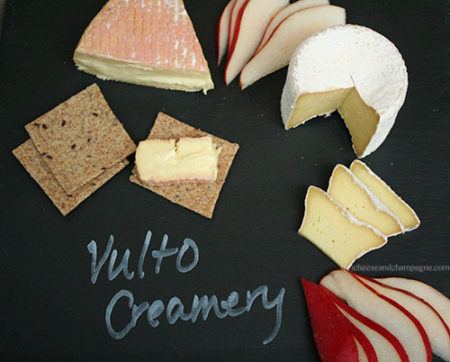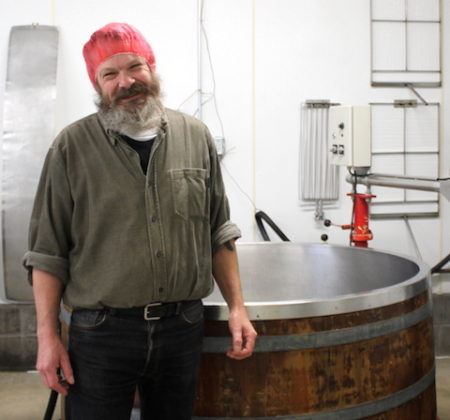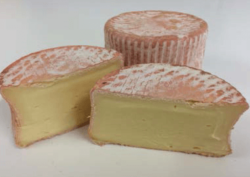Multi State Outbreak of Listeriosis due to Soft raw Milk Cheeses
The recall
 The Center of disease Control (CDC) and the US Food & Drug Administration (FDA) are investigating a multistate outbreak of Listeria monocytogenes infections in raw milk cheeses. Six people from four states were hospitalized, and two people from Connecticut and Vermont died. One illness was reported in a newborn.
The Center of disease Control (CDC) and the US Food & Drug Administration (FDA) are investigating a multistate outbreak of Listeria monocytogenes infections in raw milk cheeses. Six people from four states were hospitalized, and two people from Connecticut and Vermont died. One illness was reported in a newborn.
The FDA found Ouleout cheese contaminated with L. monocytogenes. Epidemiological and laboratory data indicates that the source of the infections is the cheese made by Vulto Creamery of Walton, NY. Whole Genome Sequencing (WGS) performed on clinical isolates from all six ill people shows that the isolates are closely related genetically. This close genetic relationship provides additional evidence that people in this outbreak became ill from a common source.
The same strain of Listeria was identified in samples taken from three intact wheels of Ouleout cheese collected from Vulto Creamery. As a result on March 7, 2017, Vulto Creamery recalled all lots of Ouleout, Miranda, Heinennellie, and Willowemoc soft wash-rind raw milk cheeses.
The Connecticut Department of Public Health collected leftover cheeses from the deceased person’s home in Connecticut. The outbreak strain of Listeria was identified in a leftover cheese that the family identified as Ouleout cheese from Vulto Creamery.
The New York Division of Milk Control and Dairy Services collected three intact wheels of Ouleout cheese from the Creamery during a joint inspection with FDA. The outbreak strain of Listeria was identified in samples taken from the three wheels of cheese. Investigations concerning this outbreak are ongoing, and more cases are believed to become linked in the future.
The Company recalled cheeses of Ouleout, Miranda, Heinennellie, and Willowemoc soft wash-rind raw milk cheeses. The cheeses were distributed nationwide, with most being sold at retail locations in the northeastern and Mid-Atlantic States, California, Chicago, Portland, Oregon, and Washington, D.C.
On March 11 the FDA had increase the recall to include all the lots of the previously recalled cheeses and four additional cheeses. As a result Vulto Creamery has recalled the following eight cheese items: Heinennellie, Miranda, Willowemoc, Ouleout , Andes, Blue Blais, Hamden & Walton Umberdue to potential contamination of Listeria monocytogenes.
Creamery History
 Jos Vulto, an artist in trade, came to the United States from the Netherlands in 1990. According to the company’s website, before Vulto started the business, he “had been making cheese in his apartment, in Brooklyn NY, for about five years, aging it under the Brooklyn sidewalk. He had never set out to become a cheese maker but after half a year of experimenting and favorable reception of some of his creations, he started to explore the possibility of starting a creamery.”
Jos Vulto, an artist in trade, came to the United States from the Netherlands in 1990. According to the company’s website, before Vulto started the business, he “had been making cheese in his apartment, in Brooklyn NY, for about five years, aging it under the Brooklyn sidewalk. He had never set out to become a cheese maker but after half a year of experimenting and favorable reception of some of his creations, he started to explore the possibility of starting a creamery.”
Expanding his business, he moved to Walton, N.Y., in the Catskills in 2012, closer to the source of his milk. Ouleout was an instant hit when it came out a few years ago. Mr. Vulto quickly earned a reputation among cheese lovers. When Vulto started creating Miranda in 2012, his aim was to make something that evoked his immediate geography.
During aging, the cheese are washed with Meadow of Love absinthe, made by Delware Phoenix Distillery (down the street from the creamery) from a variety of herbs, many grown in New York State. “I wanted something hyperlocal,” Vulto says. “When Miranda is at its best, the influence of the absinthe wash is forward without being overwhelming,”. “The flavor is a complex but well-balanced swirl of brothy, meaty, and earthy, with nutty and grassy notes and a hint of fried onions on top.”
While getting accolades for the cheeses, the operation of manufacturing these cheeses was amateurish, with 3 part time employees and handmade operation, with limited controls over manufacturing.
The Lawsuit
The widow of Richard Friedman, Vermont resident Veronica Friedman, has filed suit against Vulto Creamery after their cheese tainted with Listeria hospitalized her husband and led to his death. Ms. Friedman is alleging wrongful death as well as emotional and financial damage.
The Friedman’s purchased raw milk cheese that was manufactured by Vulto Creamery, cheese contaminated with Listeria, sometime in early October. Mr. Friedman’s symptoms began to take hold around October 11, 2016, when he went to the Emergency Room at Brattleboro Hospital. He was transferred to Dartmouth-Hitchcock medical center on October 12, where he stayed for a week and a half before being transferred to Mt. Ascutney Rehab in Windsor, Vermont. On October 31, at the rehab facility, Richard Friedman suffered a massive stroke, and was airlifted back to Dartmouth-Hitchcock where he died on November 2, 2016. The stroke was caused by the Listeriosis infection.
Advocates of Raw Milk
Advocates of raw milk believe that pasteurization destroys much of the beneficial bacteria in raw milk, enzymes and micro nutrients found in raw milk, and that the risk of bacterial contamination is very low given today’s modern, well-managed dairies. Others simply prefer the taste and freshness of locally produced milk over the longer shelf life and additives in commercial milk.
Some consumers say raw milk has more flavor and makes better cheese. Others choose unpasteurized milk as part of a broader shift away from processed foods, which are increasingly seen as unhealthy.
Raw milk has garnered increasing interest and attention nationwide in the last 10 years or so, as a small, but growing, segment of nutrition-conscious Americans choose it over commercially produced and pasteurized milk for taste and health reasons.
Raw milk products are illegal in 20 US states, can be obtained from farms in 25 states and are available in shops in 13 states. EU countries make their own laws but products made with raw milk must be labeled. About a fifth of French cheese is made using raw milk.
Europeans have eaten raw milk cheese for hundreds of years. In France, for example, 15 percent of its cheese is made of unpasteurized milk, according to French Agricultural Statistics (http://www.agreste.agriculture.gouv.fr/IMG/pdf_primeur264.pdf). The thinking is that when milk is cooked, or pasteurized, many of the flavor-rich enzymes are destroyed.
In the United States, regulations on raw milk cheese are less stringent than in Europe, where more steps are required to ensure that there is no contamination.
The FDA and CDC position on Raw milk Cheeses
 The FDA claims that there is a 50- to 160-fold increase in the risk of listeriosis from a serving of soft-ripened raw-milk cheese, compared with cheese made from pasteurized milk.
The FDA claims that there is a 50- to 160-fold increase in the risk of listeriosis from a serving of soft-ripened raw-milk cheese, compared with cheese made from pasteurized milk.
A mild heat treatment that kills 99.9% of the bacteria (3 log10 reduction) in bulk raw milk before cheese-making, would reduce the mean risk approximately 7-fold to 10-fold, compared with the baseline estimate for raw-milk cheese. This intervention is not full milk pasteurization.
Properly applied, full milk pasteurization kills all bacteria in raw milk. Testing the bulk milk used to make raw-milk cheese reduces the risk approximately 27-fold to 37-fold, but is less effective than testing raw-milk cheese lots, and still results in higher risk than the baseline risk estimate for pasteurized-milk cheese.
According the FDA, an analysis by the Centers for Disease Control and Prevention (CDC), between 1993 and 2006 more than 1500 people in the United States became sick from drinking raw milk or eating cheese made from raw milk. In addition, CDC reported that unpasteurized milk is 150 times more likely to cause foodborne illness and results in 13 times more hospitalizations than illnesses involving pasteurized dairy products.
Raw milk-related outbreaks are more common in states that allow the legal sale of raw milk for people to drink than in states that do not allow its sale. In addition, raw milk sales in one state can lead to outbreaks in neighboring states.
As reported before, this recall comes on the coattails of the cheese distributed by Deutsch Käse Haus of Middlebury, Indiana that included products sold under various brand names, including Sargento, Taylor Farms, Country Fresh, Choice Farm, MDS Foods, Meijer, Sara Lee, Guggisberg Cheese, Biery Cheese , and Saputo and others. These were all pasteurized milk cheeses. However in that case, no one has been reported sick in the outbreak.
